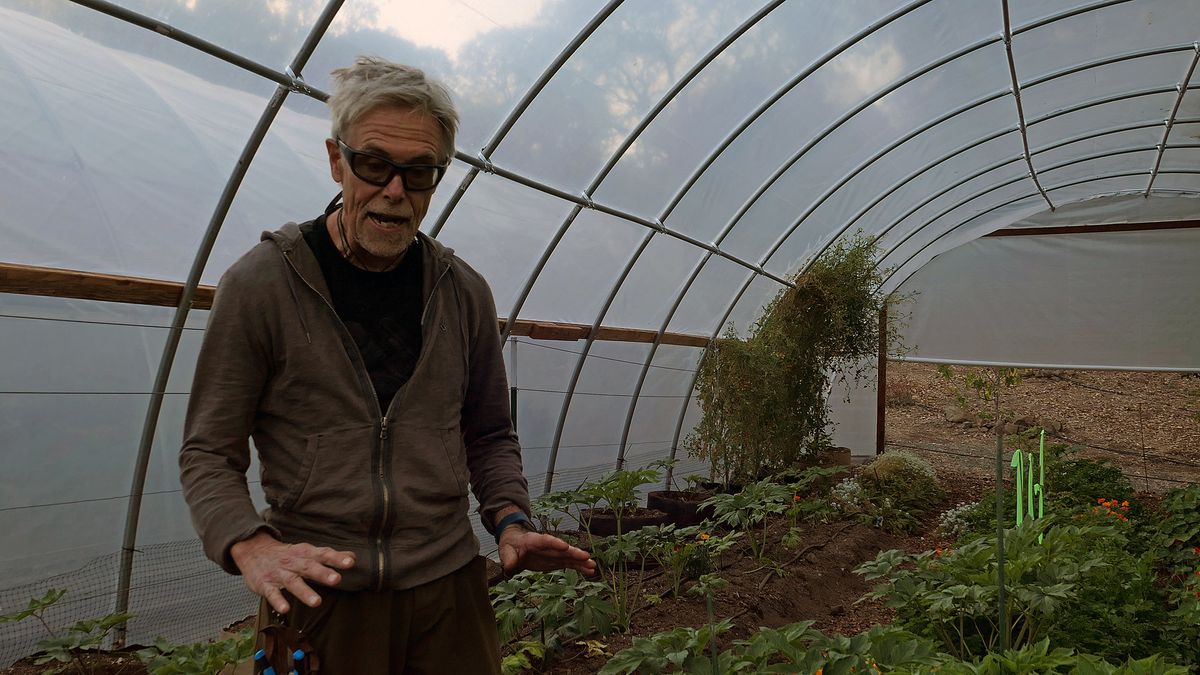Biodynamic growing prospers at GlenTucky

From wine to weed to medicinal plants, Mike Benziger is a pioneer.
His Benziger Family Winery introduced biodynamic farming techniques to the vineyards of California, eventually to be sold for a cool $100 million.
A lot of people would be happy counting their money after a sale like that, but Benziger isn’t finished.
GlenTucky Family Farm, high on the slopes of Sonoma Mountain north of the Bay Area, broke new ground in the California cannabis industry as the first biodynamic cannabis farm in the United States in 2015, according to certifying agency Demeter Association.
Today, GlenTucky continues to thrive as a boutique grower of weed, edible flowers and high-end medicinal plants.
“I’m busier now than I ever was with the winery,” Benziger said as we hiked around his 8.5-acre farm. At 68, Benziger is energetic and clearly loves GlenTucky, pointing out all the things that make the farm biodynamic.
For starters, GlenTucky isn’t like any commercial weed operation you’ve ever seen.
All types of plants are growing on the farm, from persimmons to pumpkins. In recent years, GlenTucky has branched out into medicinal plants such as the antioxident-rich oshitaba, a hearty plant that resembles an artichoke.
“There’s an incredible interest in natural medicinal crops,” Benziger said. “I make more money off of them than I do cannabis.”
The diversity of plants on GlenTucky is part of the philosophy of biodynamics. Instead of planting a massive field with a single crop, at GlenTucky multiple plant species are mixed together in a thoughtful way. The farming technique also uses animals – chickens, sheep, cows – to fertilize the ground naturally.
Rain water is collected and used for irrigation. Solar panels power the farm. Plant waste is used to create rich compost that feeds the soil.
And of course, no pesticides are used to control insects. Instead, a large swath of the farm is set aside as an “insectary” with blooming plants that attract beneficial insects to keep pests away.
“The first thing we did before we even planted cannabis was to build the insectary,” Benziger said.
In Washington, most marijuana farms are indoor operations. The state has no biodynamic-certified growers, but in California, an increasing number of outdoors operations are embracing the planet-friendly techniques.
“Mike is a dedicated biodynamic farmer that inspires others with his dedication and commitment to truly heal the Earth,” said Felicity Baxter of Demeter.
Benziger, a cancer survivor, believes in the health benefits of marijuana. He was diagnosed with bladder cancer in 2009 and then prostate cancer in 2011.
How did the marijuana help his recovery?
“After I was diagnosed, I was feeling anxious,” he said. “It calmed me down and helped the treatment be successful.”
GlenTucky is a boutique grower of three strains, Benziger said: Blood Orange, O.G., and Sour Siesel. You can find them at select stores in California, including OrganiCann in the Bay Area, Solful in Sebastopol, and Sparc in San Francisco.
“This is an exceptional place to grow cannabis,” Benziger said of the rolling Sonoma County countryside. More than location, Benziger believes the techniques of biodynamics help make his crop better.
“The highest form of quality a product can have is intentionality,” he said.
Besides being a farmer, Benziger also consults for other cannabis growers interested in biodynamics. He has no plans to retire soon, he said.
“I’m having too much fun,” Benziger said.
John Nelson is a longtime journalist, having worked at major news operations in Spokane, Memphis and Seattle. He now works as a freelance journalist, writing about outdoors recreation, marijuana and recreational vehicles.